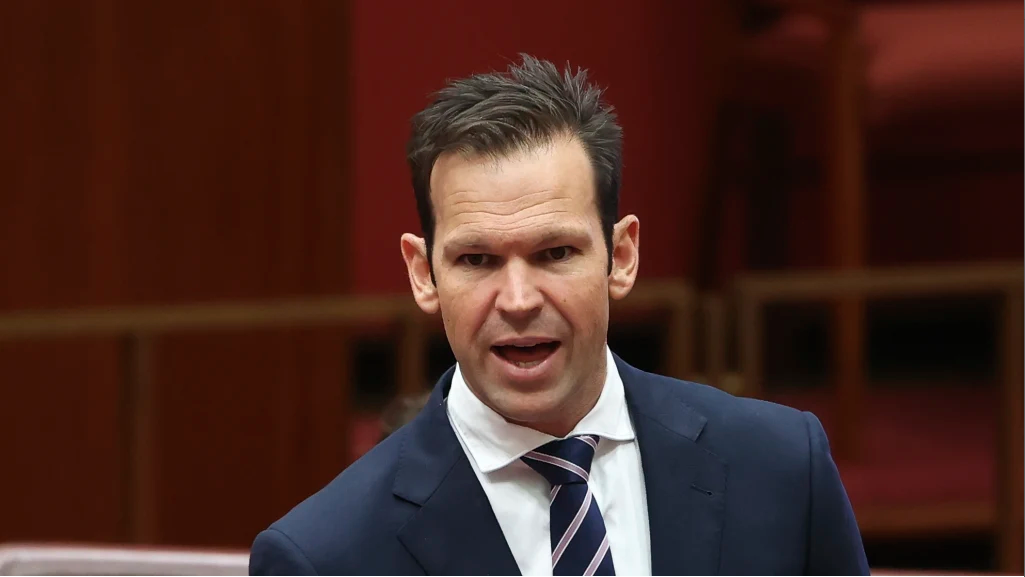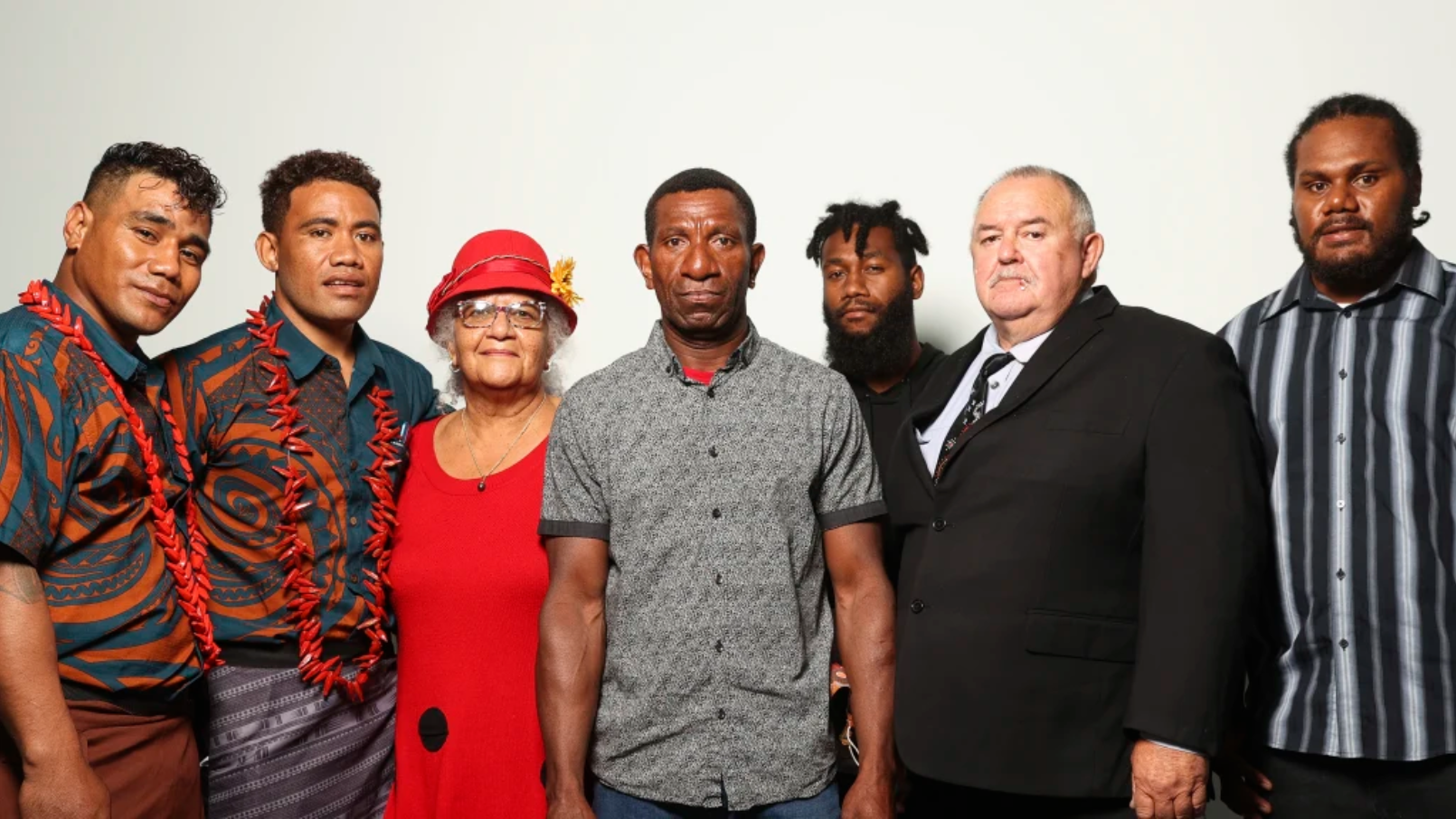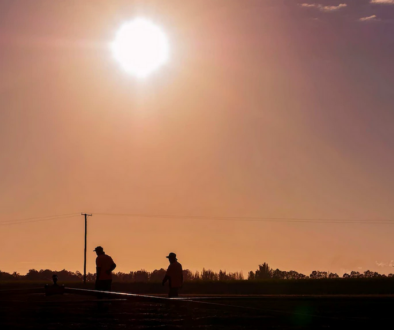
Coalition senator likens government’s seasonal worker scheme to indentured labour
Originally published on SMH.com.au written by Angus Thompson
Nationals senator Matt Canavan has likened his own government’s controversial Pacific Island seasonal worker program to indentured labour and a cartel, with visa holders unable to easily switch jobs in an environment that was ripe for abuse.
The Queensland senator’s comments came during a federal parliamentary inquiry into allegations of worker abuse under the scheme, which on Wednesday heard evidence of poor conditions and threats from employers against speaking out.
The Pacific Australia Labour Mobility scheme, which includes the seasonal worker program and Pacific labour scheme, allows employers to recruit low and semi-skilled workers from Pacific Island nations to address skills shortages in rural and regional Australia. Under the visa conditions, workers are tied to a single employer but can apply to move for a number of reasons including evidence of mistreatment or not receiving enough work.
However, under questioning from Mr Canavan, Department of Foreign Affairs and Trade assistant secretary Helen McCormack, who oversees the Pacific labour operation branch, said workers were “not really” allowed to change jobs just for better pay.
“It does sound like indentured labour, then. There’s no competition,” Mr Canavan said, to which Ms McCormack replied, “yeah”.
Mr Canavan said: “It seems like they’ve got a cartel or something. They’re not allowed to change jobs … it doesn’t seem to respond to market conditions.
“We are hearing a lot of evidence of misconduct … the conditions are ripe for that misconduct if someone can’t easily change from a job they don’t like.”
One of the businesses accused in the hearing of subjecting Pacific Island workers to “dreadful” conditions is Melbourne agri-tourism business Sunny Ridge, a berry farm with locations on the Mornington Peninsula and in the Yarra Valley.
One Samoan worker fronting the committee said he and his co-workers slept four people to a room, with no air-conditioning or fans, and earned $100 for a 60-hour week after employer deductions for accommodation, transport and health insurance.
“We just lie there and struggle to go to sleep until it’s time to get up again,” the worker told the Senate’s job security committee hearing.

Sunny Ridge has been contacted for comment.
In other evidence, a Bundaberg farmer threatened in a letter to tell a Vanuatuan worker’s wife and pastor of alleged work misconduct unless his performance improved, and put his name on a “repatriation list” of people to be sent back to their home countries.
The evidence comes after the government removed posters warning workers against bringing shame to their families by leaving their allotted workplaces, with the inquiry hearing the specific messaging was requested by Pacific governments involved in the scheme.
DFAT first assistant secretary Danielle Heinecke said the poster had been taken down following complaints and the parameters of the program were under review as a result of the issues raised.
She said workplace audits had resulted in the termination of 17 agreements with employers, and more than 15,000 workers were moved during the coronavirus pandemic after being placed on a different visa.
“I acknowledge that we’ve heard some horrific stories this morning from workers themselves … we don’t condone that,” she said.
Christian missionaries Geoff and Jane Smith told the inquiry their home was raided by Australian Border Force after housing and providing pastoral care to the Bundaberg worker, Lazare Mankon, who also gave evidence.
Labor senator Tony Sheldon, who is chairing the inquiry, said laws needed to change to protect the couple from government action.
Their solicitor, Dana Levitt of Levitt Robinson Solicitors, told the inquiry Mr Mankon was rendered unfit for work because he had a mental breakdown.
“People aren’t allowed to be human, they’re not allowed to have feelings, and they’re not allowed to do anything that undercuts the profit margin,” said Ms Levitt, who is involved in bringing on a class action regarding the issue.

Coalition senator likens government’s seasonal worker scheme to indentured labour
Originally published on SMH.com.au written by Angus Thompson
Nationals senator Matt Canavan has likened his own government’s controversial Pacific Island seasonal worker program to indentured labour and a cartel, with visa holders unable to easily switch jobs in an environment that was ripe for abuse.
The Queensland senator’s comments came during a federal parliamentary inquiry into allegations of worker abuse under the scheme, which on Wednesday heard evidence of poor conditions and threats from employers against speaking out.
The Pacific Australia Labour Mobility scheme, which includes the seasonal worker program and Pacific labour scheme, allows employers to recruit low and semi-skilled workers from Pacific Island nations to address skills shortages in rural and regional Australia. Under the visa conditions, workers are tied to a single employer but can apply to move for a number of reasons including evidence of mistreatment or not receiving enough work.
However, under questioning from Mr Canavan, Department of Foreign Affairs and Trade assistant secretary Helen McCormack, who oversees the Pacific labour operation branch, said workers were “not really” allowed to change jobs just for better pay.
“It does sound like indentured labour, then. There’s no competition,” Mr Canavan said, to which Ms McCormack replied, “yeah”.
Mr Canavan said: “It seems like they’ve got a cartel or something. They’re not allowed to change jobs … it doesn’t seem to respond to market conditions.
“We are hearing a lot of evidence of misconduct … the conditions are ripe for that misconduct if someone can’t easily change from a job they don’t like.”
One of the businesses accused in the hearing of subjecting Pacific Island workers to “dreadful” conditions is Melbourne agri-tourism business Sunny Ridge, a berry farm with locations on the Mornington Peninsula and in the Yarra Valley.
One Samoan worker fronting the committee said he and his co-workers slept four people to a room, with no air-conditioning or fans, and earned $100 for a 60-hour week after employer deductions for accommodation, transport and health insurance.
“We just lie there and struggle to go to sleep until it’s time to get up again,” the worker told the Senate’s job security committee hearing.

Sunny Ridge has been contacted for comment.
In other evidence, a Bundaberg farmer threatened in a letter to tell a Vanuatuan worker’s wife and pastor of alleged work misconduct unless his performance improved, and put his name on a “repatriation list” of people to be sent back to their home countries.
The evidence comes after the government removed posters warning workers against bringing shame to their families by leaving their allotted workplaces, with the inquiry hearing the specific messaging was requested by Pacific governments involved in the scheme.
DFAT first assistant secretary Danielle Heinecke said the poster had been taken down following complaints and the parameters of the program were under review as a result of the issues raised.
She said workplace audits had resulted in the termination of 17 agreements with employers, and more than 15,000 workers were moved during the coronavirus pandemic after being placed on a different visa.
“I acknowledge that we’ve heard some horrific stories this morning from workers themselves … we don’t condone that,” she said.
Christian missionaries Geoff and Jane Smith told the inquiry their home was raided by Australian Border Force after housing and providing pastoral care to the Bundaberg worker, Lazare Mankon, who also gave evidence.
Labor senator Tony Sheldon, who is chairing the inquiry, said laws needed to change to protect the couple from government action.
Their solicitor, Dana Levitt of Levitt Robinson Solicitors, told the inquiry Mr Mankon was rendered unfit for work because he had a mental breakdown.
“People aren’t allowed to be human, they’re not allowed to have feelings, and they’re not allowed to do anything that undercuts the profit margin,” said Ms Levitt, who is involved in bringing on a class action regarding the issue.


